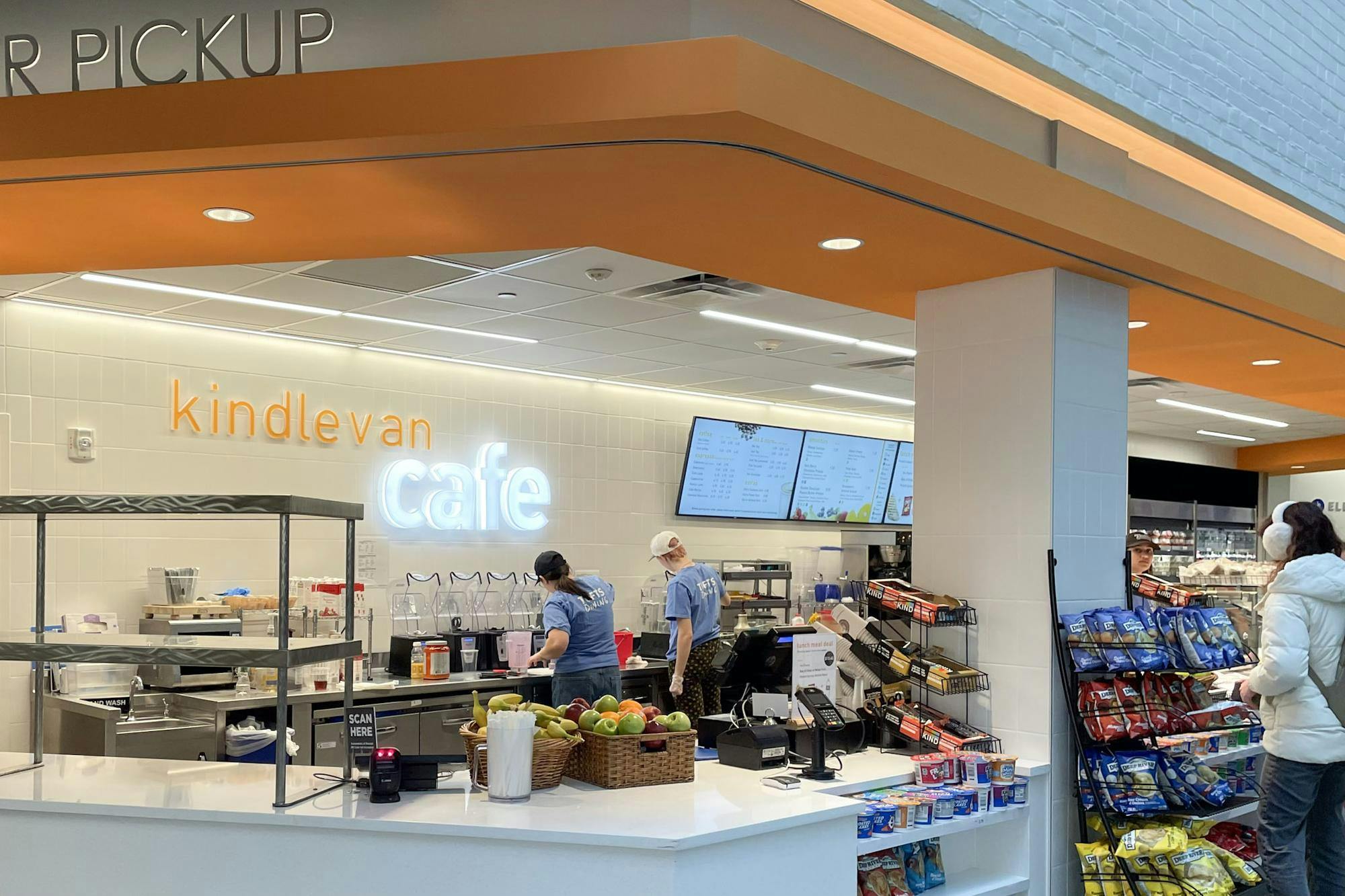Everyone loves a good renovation: just ask the Property Brothers. Even Tufts Dining tried its hand at renovations in the spring, summer and fall of 2023, with Hodgdon Food-on-the-Run and Kindlevan Café undergoing facelifts. These grab-and-go facilities are designed to supplement larger dining locations like Dewick-MacPhie Dining Center and Carmichael Dining Center. The renovations are part of a long-term plan to improve the Tufts Dining program for all students.
However, an increase in undergraduate admissions brought an expanded student population, leading one to ask if these renovations have worked for Tufts Dining.
According to Amy Hamilton, a Tufts dining communications and marketing manager, and Jesse Leal, associate director of dining services and planning, the answer is yes.
In an email to the Daily, they discussed how student demand for dining services changed during and after COVID-19.
“During Covid we saw a drop in student participation in the dining halls. For the last 2 years, we have seen numbers comparable to pre-covid 2019,” Hamilton and Leal wrote.
They also covered how dining hall engagement and subsequent staffing are reviewed on a rolling basis.
“We evaluate staffing levels at different times of the day and make necessary schedule adjustments, but we do not necessarily need to increase the number of staff,” Hamilton and Leal wrote.
Overall, the changes made to dining facilities seem to be having a positive impact on customers.
“In the residential dining centers, we have reviewed the flow of students during peak service. We have seen a decline in the time students wait in line,” they wrote.
Though the renovations have increased efficiency, they have not addressed all of the concerns of student dining workers. A sophomore who has worked for Tufts Dining for two years, referred to in this piece as Chris, recounted difficulties they faced throughout the renovation process when they were assigned to work in the ad-hoc “mini” Hodge in the Dewick lobby, including after the renovation was complete. Chris spoke to the Daily on the condition of anonymity for fear of retaliation from their employer.
“Mini [Hodge] was terrible. I respect that Tufts Dining still wanted to have [Hodge] as an option during the renovations, but … it just felt very robotic and was very tiresome. Student workers weren’t even allowed to eat [Dewick] food,” Chris wrote in an electronic message to the Daily.
They expanded in an interview on how this temporary change increased staff stress levels.
“We were all crowded together and everything just felt very monotonous and robotic, almost like an assembly line. We just passed one thing to the next,” Chris said.
Their increased anxiety did not dissipate upon ending a shift.
“Even though you clock out, you leave your shift with the feelings you got from that job,” they wrote.
When asked about the impetus for the retail renovations, Patti Klos, senior director of dining services, expanded on her previous commitment to dining enhancements. She described a multifaceted commitment that went beyond changes to the physical space.
“One of the reasons we updated Hodgdon and Kindlevan over last spring and summer was to make mobile ordering efficient for students as well as our staff,” Klos wrote in an email. “We’re working to make more variety available through pre-order to minimize the time spent waiting in line. We’re still working through those improvements and you should see more things to order on the Tufts Dining Mobile app at both locations this spring.”
She also expanded on renovation specifics.
“We’ve been able to keep up well with the expanded student body on the service front, but we are pressed for space in what we call ‘back of house’ where we receive, store, and prepare food,” Klos wrote. “Addressing this will be challenging because the cost of construction has skyrocketed in recent years, and we don’t have much open space or space in the preferred areas of campus.”
Chris described post-renovation improvements to the area behind the counter at Kindlevan.
“There is more space for the workers, which is nice. The smoothie station used to be a really tight space so the renovations really helped,” Chris wrote. “Also, when making coffees, we had to walk all the way to where the smoothies [were]. Plus there was such a slim space behind you that you had to make sure when you walked all the way over there that you weren’t bumping into anyone.”
After the updates, employees at Hodgdon-on-the Run and Kindlevan are much happier; however, the smaller annoyances still persist. Chris described the learning curve to working at Kindlevan.
“We weren’t given training [at Kindlevan]. … We went into our first day, just learning from the environment and the people who had worked there previously. Luckily, coming into this semester, I already knew how things worked at Kindlevan,” Chris said.
Hamilton and Leal wrote that employee training across Tufts Dining is “an ongoing process that is reviewed throughout the year.”
“We hold meetings with staff to keep them informed about training opportunities, new additions to dining, and changes to key standards in the hospitality industry,” they wrote.
While the physical spaces themselves have changed, practice and policy within them have mostly not. One hiccup that Chris observed, however, was a bottleneck in service when there were no authorized employees available to ring up a customer.
However, overall, Chris holds no ill will toward management, viewing senior staff as one of their own when it comes to enduring the struggles of supplying food to high volumes of undergraduates.
“The management at Hodge is really great. That was where I found my first Tufts Dining community. … I do really enjoy both students and faculty that work at Kindlevan — they’re all amazing,” they said. “Hodge is, for lack of better wording, almost like a home away from home.”






